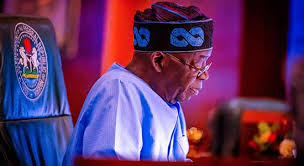
President Bola Tinubu has directed the Minister of Finance and Coordinating Minister of the Economic, Wale Edun, to calculate the cost implications of a new national minimum wage.
President Tinubu gave the directive at the State House on Tuesday, June 4, when he held a meeting with members of the federal government’s negotiation team, which met with the organised labour on Monday leading to the suspension of a nationwide crippling industrial strike called by Labour.
Speaking to journalists at the meeting, Minister of Information and National Orientation, Mohammed Idris, revealed that the Minister of Finance has been given a deadline of today to provide the figures, which will guide the government’s negotiation with organized labour.
The meeting, attended by the Secretary to the Government of the Federation (SGF) George Akume; Minister of Budget and Economic Planning, Atiku Bagudu; Minister of State for Labour and Employment, Nkeiruka Onyejeocha; and the Group Managing Director of the NNPC, Mele Kyari, according to Idris, was aimed at finding a balance between the government’s pronouncements and the economic realities on the ground.
“It’s been quite challenging, but we thank God that we’re at this point. We thank Labour that true to their words last night, they have suspended their strike early this morning.
“Government on its side, you can see that the President has just summoned a meeting of all those who negotiated on behalf of the federal government, led by the Secretary to the Government of the Federation.
“The Minister of Finance was there, the Minister of Budget and Economic Planning, myself, the Minister of Labour, the Group Managing Director of the NNPC.
“We were all there to look at those issues and then the President has directed the Minister of Finance to do the numbers and get back to him between today and tomorrow so that we can have some figures ready for negotiation with Labour”, he said.
Idris emphasised that the President is committed to a new minimum wage that is acceptable, sustainable, and realistic for all Nigerians, involving not just the federal government but also sub-nationals and the organized private sector.
Idris noted that the government is not opposed to wage increases, but wants to ensure that any agreement reached is sustainable and realistic, given the economic realities on the ground.
“Let me say that Mr President is determined to go with what the committee has said, he’s also looking at the welfare of Nigerians. Like I said earlier, government is not an opponent of Labour discussions, it’s not an opponent of wage increase, but what is there is that government is desirous of ensuring that there is balance between what its pronouncement is and what realities are on ground, therefore we’ll work assiduously to ensure that whatever we do, whatever promises government makes will be kept. That’s the idea of this meeting.
“The President has given a marching order that all those who have negotiated on behalf of government and those who are representatives of other sectors, the organized private sector and the sub-nationals, come together so that we can have a new wage award that is acceptable, sustainable and also realistic for Nigeria.
“A wage award is not just that of the federal government. Like I mentioned, the sub-nationals are involved, the organized private sector is involved, the Labour is involved. It was Labour that staged a walkout during those proceedings, now that we’ve come back to the negotiating table, all of us will work together again, assiduously, within the next one week to ensure that we have a new wage for Nigeria that is acceptable, sustainable and also realistic for all Nigerians”, Idris said.
With labour suspending its strike, the government is working to ensure a new wage award that meets everyone’s expectations, with negotiations recommenced on Tuesday (yesterday).
Comments